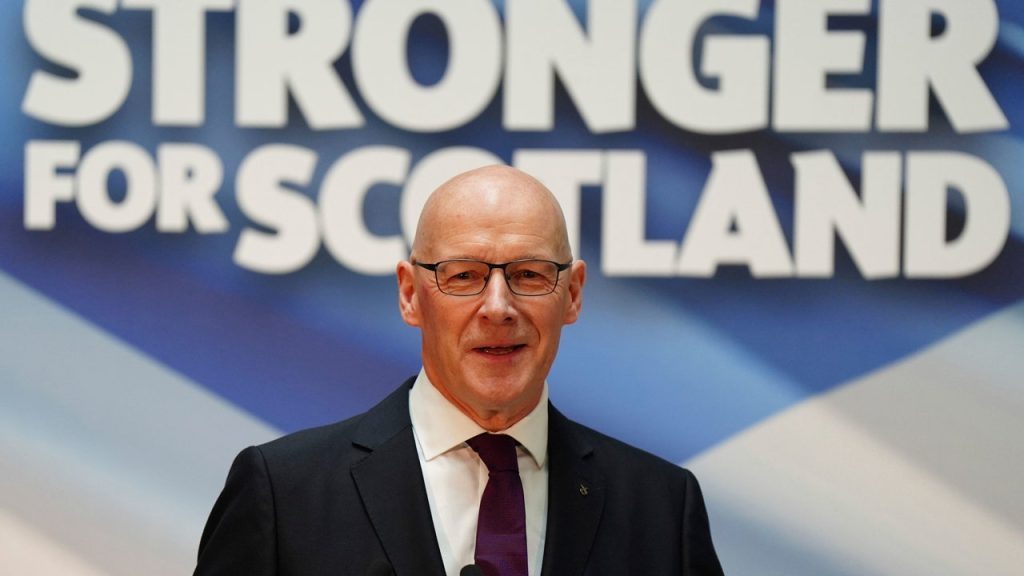John Swinney, the former deputy first minister of Scotland, took over as leader of the Scottish National Party after the resignation of First Minister Humza Yousaf. Swinney, who previously led the party two decades ago, was the only candidate to replace Yousaf. The SNP has been facing turmoil since former First Minister Nicola Sturgeon abruptly stepped down last year during a campaign finance investigation that led to criminal charges against her husband. Swinney, who has been a member of the party since he was 15, aims to bring stability to the SNP as it prepares for U.K.-wide parliamentary elections later this year.
Yousaf resigned after a political miscalculation in which he removed the Green Party from the ruling coalition, causing the SNP to lose its majority in the local parliament. This decision was the latest in a series of challenges faced by the SNP, including the campaign finance scandal and divisions over transgender rights. Swinney, in his address as the new party leader, emphasized the need to bridge divides in Scottish politics and seek compromises that benefit the nation. He pledged to listen to all voices and lead a center-left government focused on the economy, jobs, health care, education, public services, and climate change.
The tumultuous leadership change in the SNP was triggered by Sturgeon’s unexpected resignation in February 2023. Her husband, Peter Murrell, who was the party’s chief executive, was later arrested in connection with a campaign finance inquiry. Sturgeon and the party’s former treasurer were also questioned but not charged. Swinney had served as Sturgeon’s deputy first minister during her tenure, but he stepped down when she left office. Conservative and Labour leaders criticized Swinney’s leadership, citing his association with Sturgeon and his role in the party’s policies and failures.
Swinney’s agenda as SNP leader includes making the case for Scottish independence, which was rejected by voters in 2014. He highlighted Brexit and the cost-of-living crisis as examples of decisions made by U.K. politicians in London that negatively impact Scotland. Swinney emphasized the importance of Scottish independence in order to make autonomous decisions for the country’s future. His priorities as first minister will be centered on addressing economic issues, job creation, public services, health care, education, and climate change concerns.
Yousaf, who will continue to serve as first minister until Swinney is elected as his replacement, faced mounting pressure due to his government’s loss of support from other parties in the Scottish parliament. The ousting of the Green Party from the coalition further weakened the SNP’s position in the legislature, ultimately leading to Yousaf’s resignation. Swinney expressed gratitude to Yousaf for his service and leadership on various issues, despite the tumultuous political climate. The transition of power within the SNP marks a critical period for the party as it seeks to regain stability and unity in the face of ongoing challenges and controversies.


